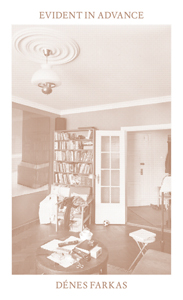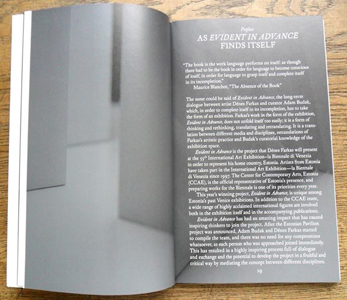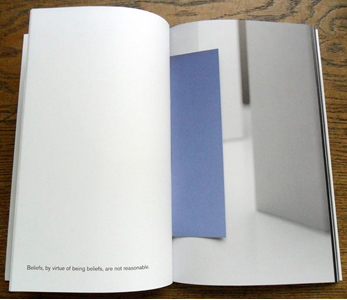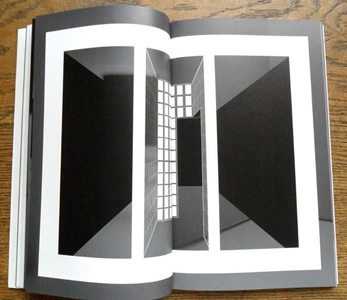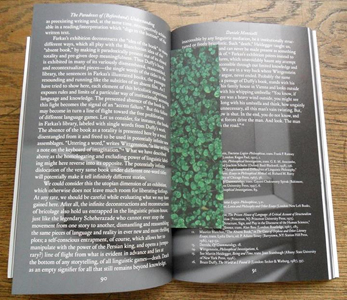Dénes Farkas's project for the Estonian Pavilion of the 55th Venice Biennale.
“If I don't trust this evidence why should I trust any evidence?,” Wittgenstein asked himself in “On Certainty.” Farkas's work is haunted by a drama of not delivering a trust to a singular evidence of
this world:
a world as he found it. Hysterically reproduced paper maquettes of choreographed architecture, imprisoned within a clumsy, photographic frame, are abstract shelters for imagined and unspoken texts. Words are characters in performance of a world as a text.
As a proposition, Farkas's exhibition and publication for the Estonian Pavilion of the 55th Venice Biennale in 2013 is “an absent book” and yet “the book to come.” The installation is a piece of spatial, rhythmical writing; a quintet of interiors woven of autonomous though intertwined, poetic fragments of quasi-domestic setting: a library, a garden, an absent cinema, a spatial book, an obsession chamber (a locus of deranged architect and non-writer). “A story? No. No stories, never again,” Farkas repeats after
Maurice Blanchot, while rehearsing his art of ultimate denial and rejection.
The book includes essays by the philosophers, Daniele Monticelli and Adriana Cavarero, the linguist Martin Prinzhorn, the writer Bruce Duffy, and the architect
Markus Miessen, as well as a rich visual report on Evident in Advance by the artist himself. The project is introduced by a critical text from the curator, Adam Budak.
Born 1974 in Budapest (Hungary), Dénes Farkas lives and works in Tallinn (Estonia). His post-conceptual photo-based practice engineers the substructures of society at the moment it renews and remakes its identity. Using minimal means, the artist constructs cinematic spaces of contemplation, where the plot awaits its author and the characters are absent. Silent déjâ vu interiors with no apparent spatial hierarchy become the potential crime scenes of a representation in yet another crisis and decline. Farkas's social geometry is a cartography of failure and dysfunction. His visually reduced, rebellious spectacle of language announces a new melancholy in a world in doubt.

